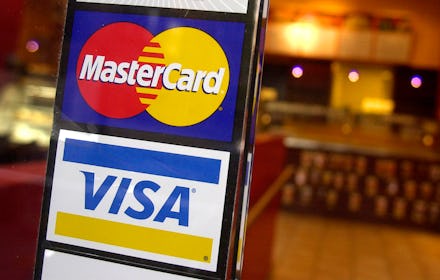What Your Credit Score Really Means for You and Why You Should Care to Be A Better Adult

Oh, millennials. Blissfully, some might say willfully, unaware of so many real adult things their parents had mastered by they time they were "your age." One of those things is, perhaps, a credit score, that frighteningly grown-up financial concept that seems like it will forever allude the many, many people struggling under the weight of student loans.
Read more: Millennials Are Getting a Ton of Financial Help From Their Parents. Here's Why.
What even is a credit score? "Your credit score is a three-digit number generated by a mathematical algorithm using information in your credit report," according to BankRate.com. Put another way, it's a numerical ranking that tells lenders what your credit history looks like — do you pay your bills on time? How likely are you to repay your debts to them? The most common kind of credit score is the FICO credit score, BankRate reports, which readers can access at myFICO.com. Credit scores fall between 300 and 850 — the higher, the better.
Why does a credit score matter? At some point, you're probably going to want to borrow money — to buy a car or a house or any of those substantial, adult-y milestone items. And when the time to take out a loan comes, you'll want to make yourself the most attractive version of you for the banks, which means a shiny credit score. "The better your history appears, the more attractive you become as a loan customer," according to e-Loan. You're more likely to be approved for a loan, and you may get a better rate.
If your credit score tanks, bringing it back up is tough — but doable. According to e-Loan, working with debt management agencies and credit counselors are both good ways to get a credit score back on track. Perfect credit is not a must, but credit history is.
How do I get one of those? Credit history is a thing you build. According to NerdWallet, credit can be built in a number of ways, including opening a secure credit card and paying the bills in a timely fashion; taking out a credit-builder loan; enlisting a co-signer on loans and credit cards; and having someone (like a parent) add you as an authorized user on their credit card. Option No. 1 is probably the best place to start.
Then, pay your bills on time, whether they're credit card bills, utility bills, doctor's bills — whatever. Take care of them ASAP. NerdWallet also advises keeping accounts open for as long as you can, so that you can demonstrate a long, illustrious payment history.
And check your credit score with reasonable regularity. That way, if anything's off, you can catch it before it torpedoes your credit.